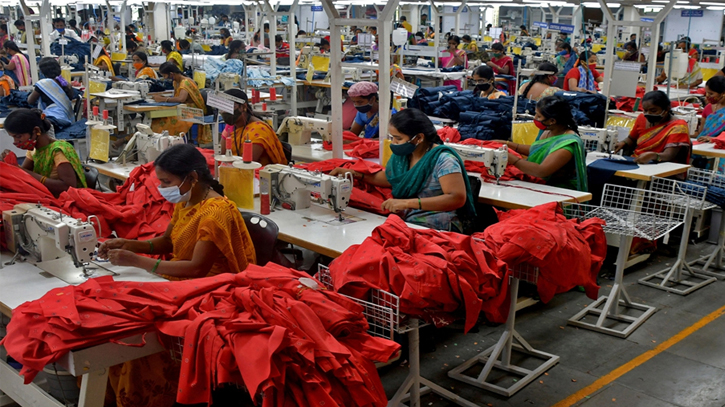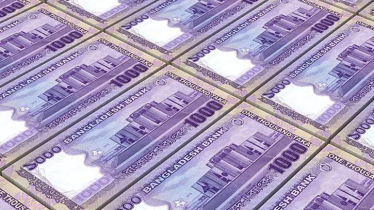
Photo: Collected
The garment industry, the major export sector, experienced its lowest export performance in six months of the 2024 fiscal year, with exports totaling $3.29 billion in April. This decline can be attributed to the country observing a six-day-long holiday to celebrate the Eid festival.
According to Export Promotion Bureau (EPB), apparel export was $4.05 billion in November, $4.56 billion in December, $4.97 billion in January, $4.49 billion in February, and $4.35 billion in March.
Exporters think, apparel export of the country is lower than the EPB published data. They think the government is showing the export high to show the economy normal.
While the Export Promotion Bureau's data indicates a 5 percent year-on-year growth in garment exports to $40.49 billion during the first 10 months of the current fiscal year, the sector experienced a setback in April due to extended public holidays. Despite the overall growth trend, the holiday period resulted in lower export figures compared to the data from the previous six months.
Fazle Ehsan Shamim, vice president of Bangladesh Knitwear Exporters and Manufacturers Association (BKMEA) told the Daily Messenger “The garment sector is suffering since June 2022 due to global economic slowdown caused by Russia-Ukraine war. And still the sector has been suffering.”
Furthermore, productivity has been hampered by a prolonged heatwave, leading to worker absenteeism in factories, particularly those lacking chiller facilities. As a result, Shamim predicted that export figures for May would also be lower.
Interestingly, woven items export did not show any growth during the first 10 months of the 2024 fiscal year. Export figures for woven items remained stagnant at $17.61 billion, the same as in the previous fiscal year of 2023. Conversely, knit export witnessed a notable increase, reaching $22.87 billion compared to $20.96 billion during the same period last year.
Additionally, in a typical economic scenario, countries that traditionally import garment products are currently reducing their imports. This shift is attributed to their struggles with ongoing inflation stemming from economic uncertainty.
Industry insiders believe that countries currently embroiled in war or affected by conflict are experiencing economic strains, leading people to cut costs wherever possible. Consequently, even major importers are reducing their garment imports as a result of these economic challenges.
Bangladesh predominantly exports cotton-based products such as T-shirts, sweaters, blouses, underwear, and denim. As the world's second-largest garment exporter after China, Bangladesh holds the title of the largest denim exporter to the USA and a major cotton exporter to the EU.
The exporters think, from the next year the industry will bounce back to strong growth. As China is going to stop producing the cheap cloths. Already, China has increased its investment in Vietnam in high end sector. Thus, with few years, Vietnam become the largest competitor of Bangladesh.
Messenger/Fameema









